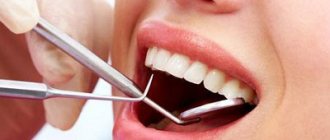What is a tattoo
A tattoo is a design applied to the body by injecting ink into the upper layers of the skin. Deep penetration of the coloring pigment ensures the durability of the design. Modern equipment and paints guarantee the quality of the tattoo. Masters create real masterpieces of body painting.
The paint is injected through the wound made with a thin needle. The process is quite painful, but, as a rule, they do not resort to pain relief - it delays the wound healing process. The time spent on tattooing depends on the complexity of the design and the skill of the artist.
The duration of tattoo healing depends on the care of the tattoo and the body’s ability to regenerate. During the first days, it is necessary to lubricate the tattoo with healing ointment, protect it from damage and infection, and give air baths.
Consequences
Knowing what consequences a visit to a tattoo parlor can lead to, a pregnant woman will think carefully about the need for the procedure. Risk of applying a permanent design
is as follows:
A woman expecting a child is an unpredictable creature, but the question of whether it is possible to get a permanent tattoo during pregnancy usually comes to mind for those who got a tattoo without yet knowing about their situation. These (usually very anxious) expectant mothers should be aware of the “all or nothing” principle. It consists in the fact that early pregnancy under the influence of various harmful factors (medicines, alcohol, x-rays, tattoos, etc.) is either interrupted or develops normally (i.e. without deviations).
For those who already know about the future baby and still want to get a tattoo or make-up, it will be useful to study the next two sections of the article.
What are the dangers of tattoos?
When deciding whether pregnant women can get tattoos, first of all, you should take into account the interests of the baby. Unfortunately, getting a tattoo during pregnancy is indeed dangerous for several reasons.
A tattoo is a beauty that not everyone understands. Therefore, you need to weigh the possible risks and consequences, of which a “moving” design is the most harmless, albeit unaesthetic, “phenomenon.”
Danger of infection
One of the most common ways of contracting HIV or hepatitis C is through the use of unsterile needles. In professional salons, the sterility of such services should be at a high level, the chance of infection is minimal. And, nevertheless, it’s not just about your health. Are you ready to take risks for a tattoo?
Even if the procedure itself is carried out flawlessly, damaged skin will take several days to heal.
Changes in the body of a woman expecting a child can cause a decrease in immunity, delaying healing. An infection can get into a fresh wound and it needs to be treated. Whether these ointments will harm the baby is the first thing you should think about.
Allergy
Even if you have never been allergic to anything, under any circumstances, there is a first time for everything.
Tattoo ink has a complex chemical composition that is foreign to the body. In addition, the expectant mother’s body undergoes hormonal changes, and allergic reactions may worsen.
Painful sensations
Even the thinnest needle is still a needle, and its injections will be painful. Imagine how many times you will have to pierce the skin to create a pattern of mini-dots! Anesthesia is not used when applying a tattoo, and it is not worth insisting on it, given pregnancy.
Even if the expectant mother has a high pain threshold, long-term discomfort is inevitable. A small drawing is applied in about half an hour. 30 minutes of stress transmitted to the baby.
By the way, pregnancy can reduce the pain threshold.
First trimester
The embryo is just forming, the basic life support systems are being laid. The placenta is not yet able to protect the baby.
This means that the ink that is injected into the skin and penetrates the bloodstream may well enter the baby’s developing body.
The baby is also not protected from adrenaline, which the mother’s body releases during pain.
Second and third trimester
Well, the ink is unlikely to harm the baby - the placenta is formed, and the baby is stronger. But to the question: “Is it possible to get a tattoo?” it is still reasonable to answer in the negative. Now the main problems are in my mother’s health. Pregnancy usually affects blood clotting and blood pressure.
There are probably some other changes associated with bearing a child - a lack of vitamins and minerals and others. You may not lose consciousness while the artist is working, but the tattoo will take a long time to heal. Unless, of course, there is a master who will undertake to tattoo a thoroughly pregnant woman. This is definitely not worth trusting.
Changed body = changed drawing
And the most offensive thing is that it is quite possible that everything will be in vain. A woman's figure inevitably changes during pregnancy. It's not about the belly, everything is clear here. But the inevitable weight gain, swelling, and stretch marks will change the condition of the skin of the entire body.
It is impossible to predict what a tattoo will look like after childbirth.
Don't forget about hyperpigmentation, which can also change the appearance of a tattoo.
Tattoo during pregnancy: pros and cons
Doctors categorically do not recommend getting a tattoo during pregnancy and lactation. Most recommendations boil down to the fact that you first need to give birth and feed the baby, and then decide on the issue of applying a tattoo to the body.
Contraindications
Doctors prohibit tattooing in the following cases:
- The first trimester of pregnancy, when the fetus is not yet formed.
- Increased arterial and intracranial pressure.
- If you are allergic to the components of the coloring composition, drugs and painkillers used when applying the drawing.
- If there are inflammations, rashes, and ulcers on the skin, this can cause a sudden spread of infection throughout the body.
Taking into account these contraindications, the final decision is made by the pregnant woman - the tattooist must voice them and warn the woman.
Is it possible to get a tattoo?
Permanent makeup (or tattooing) is another type of cosmetic procedure that it is advisable to avoid while expecting a child. This is the drawing of eyebrows, eyes and lips by introducing coloring mascara into the skin. This is a much more gentle procedure compared to a tattoo, but the principle is the same - a painful violation of the integrity of the skin and the introduction of paints into it.
In salons, such makeup is applied using pain-relieving ointments; when treating lips, a product is used to prevent herpes. These drugs are not recommended during pregnancy. It is also necessary to remember the likelihood of infection, allergies and painful shock.
Therefore, the answer to the question whether pregnant women can get eyebrow tattooing will be negative.
This also applies to microblading during pregnancy - drawing eyebrows through microscopic incisions. In addition, hyperpigmentation of the face of the expectant mother can make adjustments to the beauty achieved in the salon.
Main risks: can pregnant women get tattoos?
Everyone knows that early and late periods (first and last trimesters) are the times of maximum risk, when there is a threat of miscarriage under the influence of some negative factors. Any intervention must be justified - you should not subject your body to any mechanical stress if there is even the slightest danger of not being able to carry the baby to term. In the early and late stages, women should think before getting a tattoo and assess all the possible risks of such a procedure.
Allergic reaction
Firstly, getting a tattoo can provoke strong or mild allergic reactions. Even a careful study of the composition of coloring pigments is unlikely to help you draw any correct conclusions. Modern dyes are characterized by the presence of aggressive components. When introduced into the skin, they can cause negative reactions. Naturally, the pigment can also affect the fetus. Simple allergic reactions can be neutralized with antihistamines. But their use during pregnancy is unlikely to have a positive effect on the development of the baby. Therefore, it is better not to risk the child’s health by using unknown compositions of tattoo inks. Even the presence of environmentally friendly ingredients does not provide a complete guarantee that nothing will happen to the child and the expectant mother.
Painful sensations
Secondly, problems can be provoked by painful, albeit mild, sensations. During pregnancy, a woman's hormonal background changes greatly, and sensitivity increases. Therefore, even minor painful sensations can bring it to a very bad state. Of course, the tattoo artist can offer a local anesthetic to neutralize the discomfort. But there is no guarantee that this remedy will not negatively affect the development of the fetus. Therefore, any qualified, responsible specialist will refuse to apply a tattoo to a pregnant potential client. It is interesting that in a “special” situation, even minor pain can, at the subconscious level, provoke the instinct to “get rid of the fetus.” Therefore, in this case, harmful anesthesia cannot be avoided.
Sanitary conditions
Thirdly, problems may arise due to poor sanitation. If you are “in a position” and a qualified, trusted artist refuses to apply a tattoo, you should just accept this decision. There is no need to look for some underground “specialists” who are interested in making money by any means and can carry out the procedure in unsanitary conditions, cause infection, and kill the mother and child. Many women want to get tattooed during pregnancy so much that it becomes an obsession. But you should gradually overcome such desires, understanding the reality of the threat of miscarriage and other terrible consequences.
Safe Alternative
Believe me, you are already lovely! And if you still want to emphasize your natural beauty with a tattoo, use safe, painless and effective methods - henna designs or metallic tattoos.
Henna is a natural dye that is used to create patterns on the skin. They last for about 10-14 days, meaning you can create new stunning looks every two weeks. In addition, with a little practice, they are easy to do yourself.
A relatively new technology is metallic tattoo . These are temporary tattoo stickers with a metallic sheen. They look amazing if you don't overdo it. Metallic tattoos last 3-5 days, and even longer if handled carefully.
conclusions
So, now it is possible to briefly reflect all the conclusions that were made after compiling the article. Firstly, when preparing to become a mother, avoid getting tattoos, as this can have a very negative impact on the health of the baby and even lead to miscarriage. Any professional salon will refuse to perform such a procedure.
Secondly, be sure to take care of your dermis during pregnancy and monitor your weight. Thirdly, after completing lactation after childbirth, have your tattoo adjusted in a salon if you need it.
It was found out that tattoos can be dangerous for the development and life of the fetus, so it is better to refrain from such procedures during pregnancy. But at the same time, if the tattoo was done before you learned about your “situation,” you should not immediately panic. You can undergo an examination and, if an infection is present, begin treatment of the pathology at the first stage.
The main thing is that the expectant mother puts the baby’s health and her own first place. Then no problems will arise, because caution during pregnancy is very important. And one more nuance - always contact licensed professionals in salons, and not dubious private traders. In the second situation, there is always a high probability of a bad outcome.
Tattoo after childbirth
If you are still unshakable in your decision to get a tattoo, then do not get it immediately after giving birth.
Firstly, this is not the best option for breastfeeding. Secondly, let your figure return to normal. Go in for sports, take a course of massage and body wraps if possible. And after that, feel free to choose a drawing and a place for it. For the optimal choice, consult a specialist - he will tell you where the skin is least susceptible to age-related changes.
By the way, a tattoo on the stomach for girls after childbirth can be a good way to hide defects that have appeared - for example, a scar after a caesarean section. Don’t forget: you should choose a tattoo parlor and artist very carefully, without being fooled by low prices and self-promotion.
First I got a tattoo, then I found out I was pregnant
If you got a tattoo before you found out you were pregnant, don't worry. If the procedure performed in a licensed salon did not cause negative consequences, then the fetus continued its normal development.
If you were so reckless as to get a tattoo at home, tell your doctor and get a laboratory test for infections. Early detection of even dangerous diseases at the level of development of modern medicine often ends in almost complete recovery.
Already applied tattoos
Many girls get tattoos even before pregnancy. It is quite natural for them to worry about the pattern after pregnancy. There is a risk of loss of quality, especially if the tattoos are located in the abdomen and lower back.
The skin inevitably stretches, proportions become distorted, and colors fade. You can't avoid this, but you can minimize the changes.
Here are some recommendations:
- wear a bandage during pregnancy;
- Do regular exercises for pregnant women - it will strengthen muscles and reduce skin stretching;
- moisturize the skin with special creams, cosmetic oils are also suitable;
- after giving birth, go in for sports and watch your diet in order to, if possible, return to your previous figure parameters;
- if the tattoo has changed significantly, contact a tattoo parlor, preferably the same artist. Perhaps it will be possible to correct or modify it, or even hide the defects that have appeared under it.
Should I get a tattoo during pregnancy - the basic rules for the procedure
To ensure that driving in a permanent pattern goes as smoothly as possible and without negative consequences, it is recommended to adhere to the following rules:
- Contact only professionals - the studio or salon in which you decide to get a tattoo must have permission to perform this kind of manipulation.
- Cleanliness and sanitary conditions in the salon play an important role.
- Pay attention to the artist who will perform the tattoo. The specialist must be neat and wear gloves. Each new pair is replaced every time the master takes on something other than your skin.
- It is imperative to use a new (sterile) needle - ask that the package with the needle be opened in front of you. There should also be equipment for processing reusable instruments - an autoclave.
- Pay attention to the ink that will be driven in.
- If you have doubts about the risks of infection as a result of getting a tattoo, you must be tested for hepatitis B, HIV, and syphilis within the next few months after the procedure.











